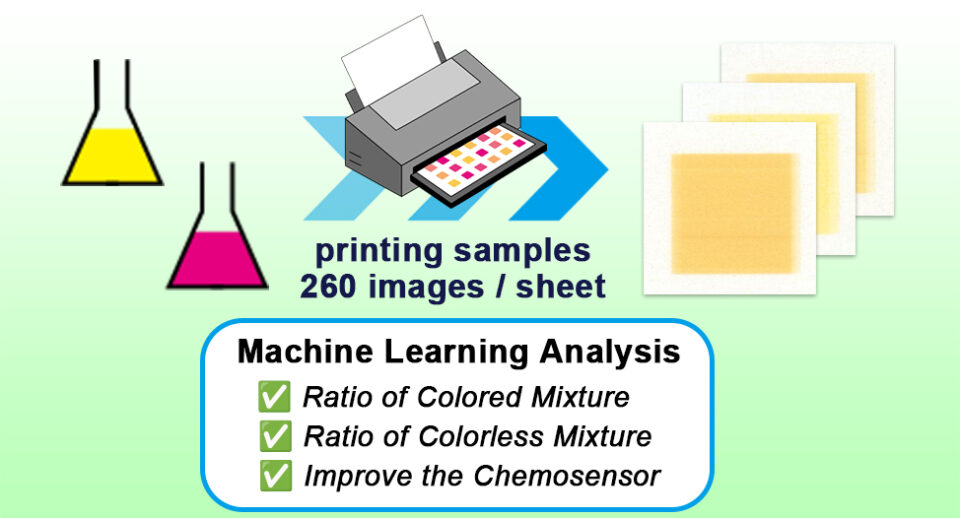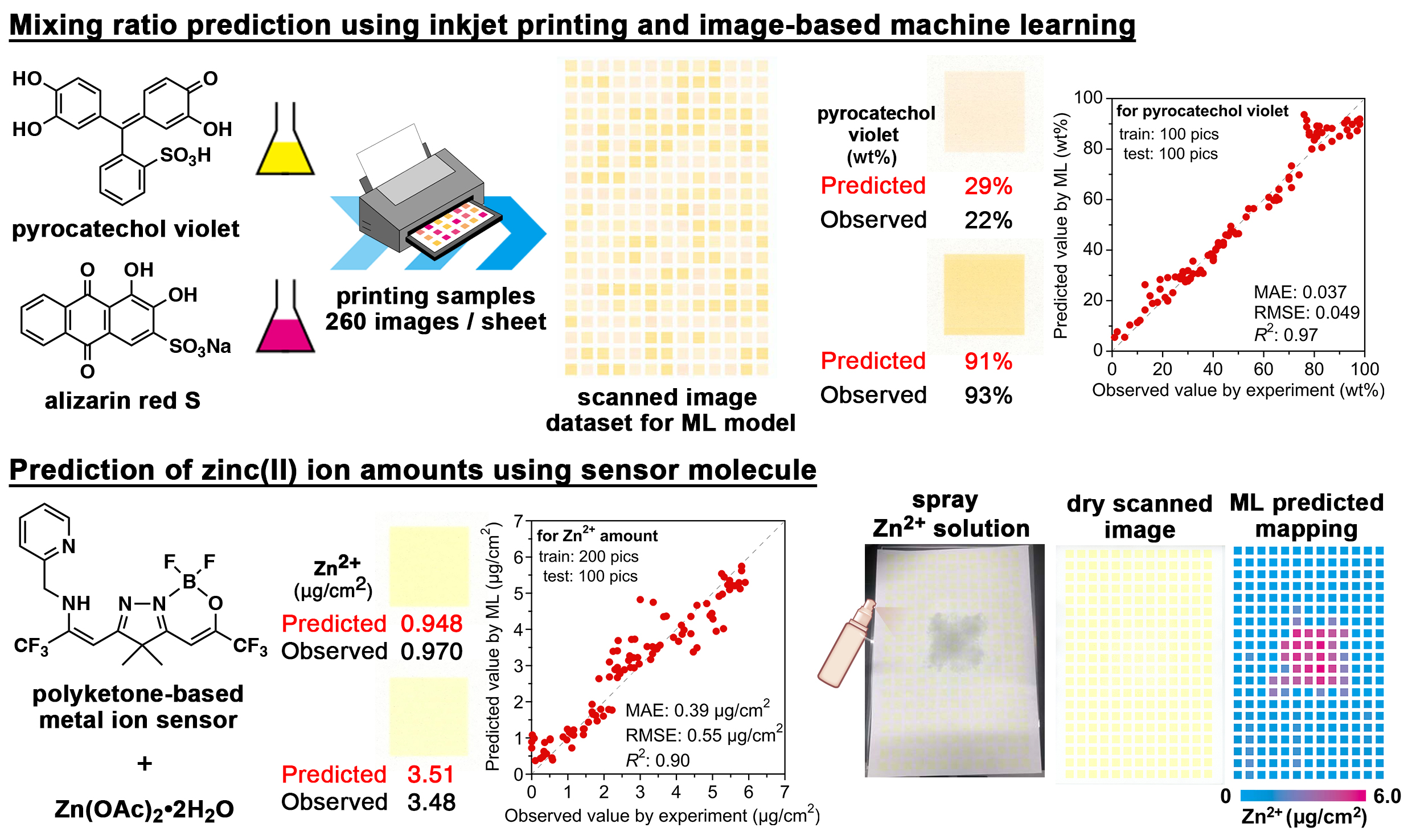
Key Points
- By utilizing an inkjet printer, up to 260 mixed-ratio image data samples per A4 sheet can be rapidly and easily obtained.
- Successful prediction of mixture ratios not only for pigment materials but also for diverse chemical species such as colorless organic compounds, macrocycles with different ring sizes, cis/trans isomers, and ortho/meta/para positional isomers.
- By using previously developed metal ion sensors based on a polyketone scaffold, the system can also detect Zn²⁺ at the microgram scale and perform quantitative distribution mapping.
Overview
A research group led by Professor Yasuhide Inokuma, Specially Appointed Professor Ichigaku Takigawa, and Specially Appointed Assistant Professor Yuki Ide of the Institute for Chemical Reaction Design and Discovery (WPI-ICReDD) at Hokkaido University, in collaboration with Associate Professor Tsuyoshi Minami of the Institute of Industrial Science at the University of Tokyo, has developed a method for rapid and accurate prediction of organic molecule mixture ratios and trace metal ion amounts by printing and scanning chemical mixtures with an inkjet printer, followed by image-based machine learning (ML).
Previous approaches to predicting chemical mixture compositions via image-based ML have the advantages of being non-destructive and contact-free, but a major challenge was the requirement for large sample quantities and significant time to acquire the training images needed for model construction. This limited efficient data expansion and hindered the broader implementation of image-based ML in chemical research.
To overcome this bottleneck, the team developed a data acquisition method that combines inkjet printing and scanning of chemical mixtures. This dramatically reduces both sample usage and labor time. This approach enabled the construction of a system capable of rapid and high-precision prediction of mixture ratios and trace metal ion concentrations. By arbitrarily setting up to 260 conditions on a single A4 sheet for inkjet printing and scanning, the team could acquire an image dataset in under an hour, significantly streamlining the collection of training images.
The system demonstrated high accuracy in predicting mixture ratios for visually indistinguishable chemical species, achieving a mean absolute error (MAE) of 3–8%. This includes:
- Colorless organic compounds (salicylic acid and acetylsalicylic acid)
- Cis/trans isomers (fumaric acid and maleic acid)
- Ortho/meta/para positional isomers (aminophenols)
- Cyclic compounds with different ring sizes (α-/γ-cyclodextrin)
When using the previously developed metal ion sensor molecules based on a polyketone scaffold, the system successfully detected Zn²⁺ at the microgram scale. Moreover, when Zn²⁺ solutions were sprayed and dried onto sheets pre-printed with the sensor molecules, the team demonstrated that image-based ML enabled quantitative distribution mapping under conditions with extremely weak visible responses. Notably, this evaluation of metal ion quantities was achieved without the use of expensive or specialized spectroscopic instruments.
The image-based ML system developed in this study provides a versatile method for quantitatively acquiring and analyzing diverse chemical information using only simple inkjet printing and scanning, with no need for special equipment or complex sample preparation. It is expected to find broad applications in chemical fields such as materials analysis, reaction monitoring, and quality control. As a high-precision, low-cost next-generation analytical technology that anyone can access easily, it shows great promise for widespread deployment.
These research results were published online in Organic Letters on July 12, 2025.
Article Details
Taichi Sano, Yuki Terauchi, Yuki Ide, Ichigaku Takigawa, Tsuyoshi Minami, Yasuhide Inokuma, Org. Lett., 2025, 27, 32, 8841–8845
DOI: 10.1021/acs.orglett.5c02270


